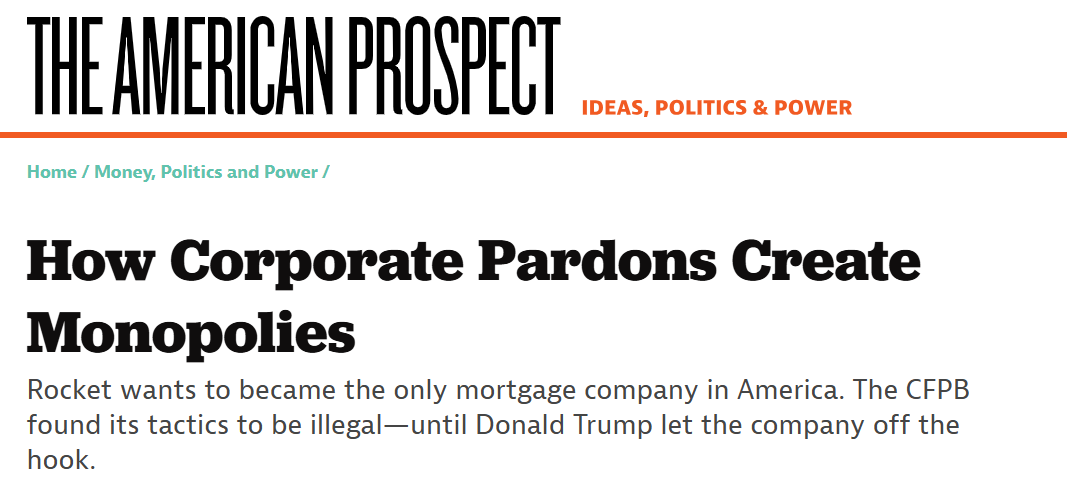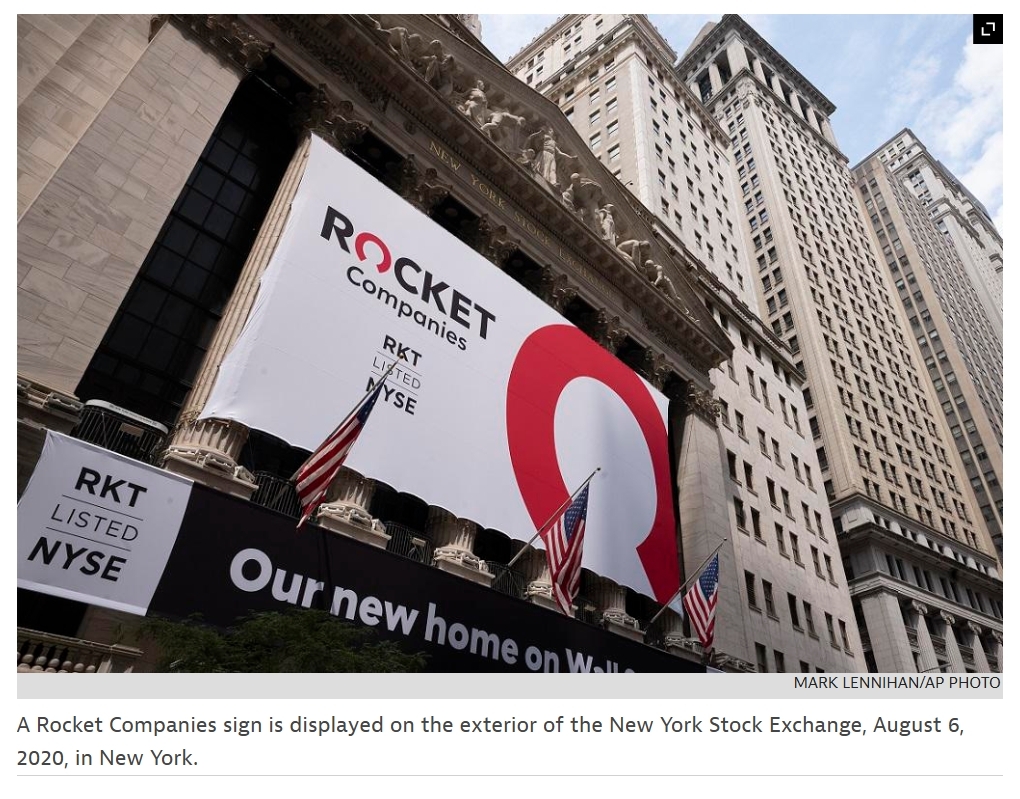Welcome to DU!
The truly grassroots left-of-center political community where regular people, not algorithms, drive the discussions and set the standards.
Join the community:
Create a free account
Support DU (and get rid of ads!):
Become a Star Member
Latest Breaking News
Editorials & Other Articles
General Discussion
The DU Lounge
All Forums
Issue Forums
Culture Forums
Alliance Forums
Region Forums
Support Forums
Help & Search
General Discussion
Related: Editorials & Other Articles, Issue Forums, Alliance Forums, Region ForumsHow Corporate Pardons Create Monopolies

https://prospect.org/power/2025-04-02-how-corporate-pardons-create-monopolies-rocket-mortgage/

The business world thought Donald Trump would usher in a boom, only to get chaos and uncertainty. Businesses don’t like to make big plans when everything can change in an instant. That’s why merger activity in the U.S. has fallen by 18 percent in the first quarter of this year, despite the belief that pent-up dealmaking would soar once Biden’s aggressive antitrust enforcers were sidelined. The relative continuity in antitrust enforcement among Trump officials probably also has something to do with it. If a company in this environment is pursuing not one but a series of mergers, you have to wonder why they’d risk it. The reward payout must be significant: for example, moving toward a monopoly of the means by which Americans locate, buy, and pay for a home.
Rocket is America’s third-largest mortgage lender, with $1.8 trillion in loans originated. Mr. Cooper is America’s largest mortgage servicer, with seven million borrowers making mortgage payments to it. The former is buying the latter in a $9.4 billion deal. If the deal clears, 1 in every 6 mortgages in America will be serviced by the new company, to go along with millions of mortgage originations. And Rocket already has secondary businesses on which to bolt that combination. Rocket Homes helps people search for housing, and the recently announced $1.75 billion purchase of Redfin will bolster that. Rocket Close provides title insurance and other settlement services to close mortgage loans. “We like to say that ‘we eat our own dog food,’” boasts a statement on the Rocket website. “We’ve grown from a single mortgage lender to an ecosystem of businesses that create new opportunities for our clients.”

We actually know how Rocket plans to leverage the power resulting from this kind of vertical combination. The details of that ambition were spelled out in a lawsuit by the Consumer Financial Protection Bureau filed last December, which accused the company of illegally steering home borrowers to its other mortgage products. But on February 27, the new regime at the CFPB, under the direction of Project 2025 architect Russ Vought, dropped that Rocket case. Just days after that, Rocket’s buying spree began, confident that it can use cross-selling techniques and surveillance tactics to gouge customers and grow profits with relative impunity. That’s what antitrust officials have to look at in reviewing this merger. And it’s yet another dangerous consequence of Donald Trump deciding to issue corporate pardons and not enforce laws against white-collar crime.
BEFORE I ELABORATE, INDULGE ME a moment to discuss Mr. Cooper (no relation to my Prospect colleague), a cute name that obscures a dark past. When mortgages were issued and immediately sold and pooled into securities during the mid-2000s housing bubble, the servicer became the day-to-day point of contact for the borrower. Servicers took monthly payments and distributed them to the owners of the loan, who might be anyone from California pension funds to German investment bankers. When the crisis emerged, these companies not only could not handle the surge of requests for loan modifications, but their financial model actually incentivized foreclosures over modifying loans. So employees were instructed to lie to borrowers, swamp them with unreasonable paperwork requests to delay modifications, and do whatever necessary to push people into foreclosure. In one infamous instance, gift cards were given out to the employees who foreclosed on the most borrowers.
snip